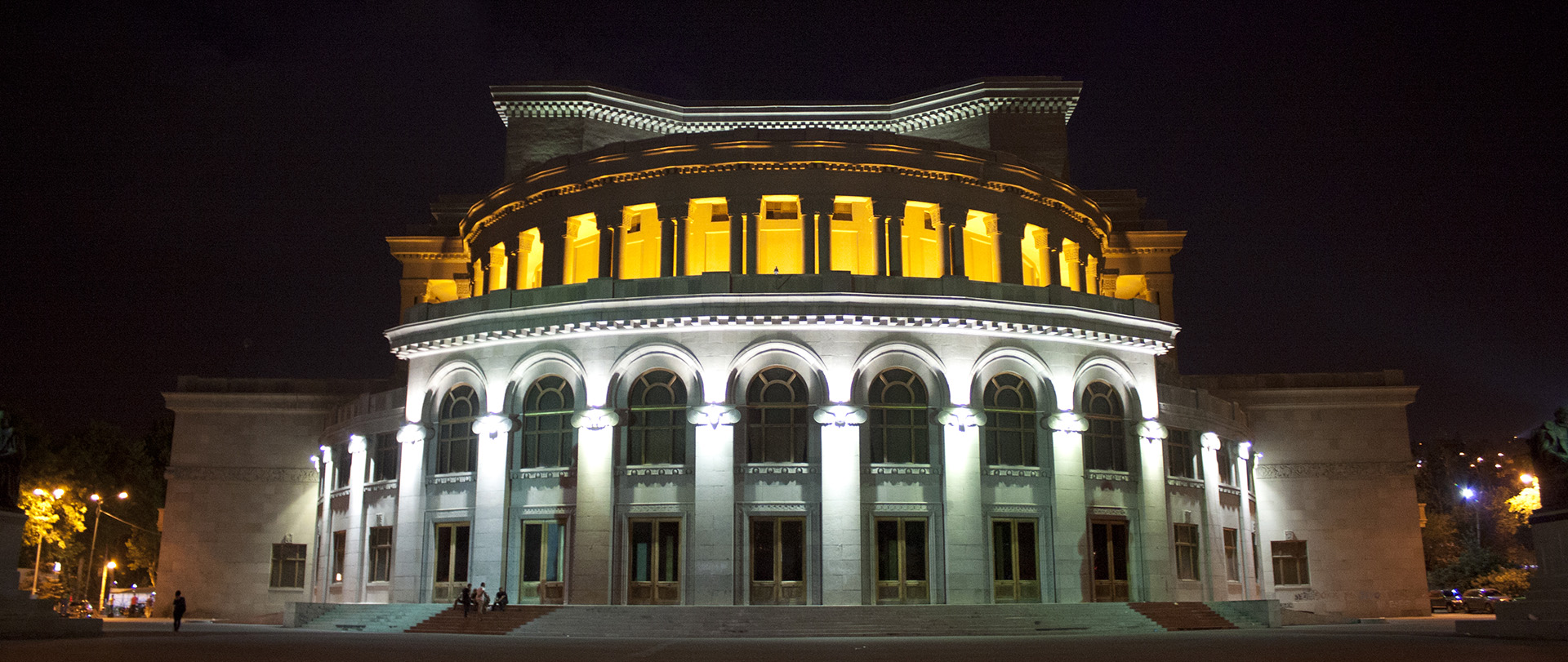
Objects of culture
Below we present some museums, theaters, concert halls of the city of Yerevan. You can book tickets for concerts, performances and other events held in Yerevan on the toms.am website.
National Gallery of Armenia
 The gallery was founded in 1921 and is part of the museum complex located on Republic Square. The National Gallery occupies the upper floors of the complex, from the third to the eighth. It houses the largest collection of Armenian fine art in the world.
The gallery was founded in 1921 and is part of the museum complex located on Republic Square. The National Gallery occupies the upper floors of the complex, from the third to the eighth. It houses the largest collection of Armenian fine art in the world.
Address: Yerevan, Aram Street 1
moreHistory Museum of Armenia
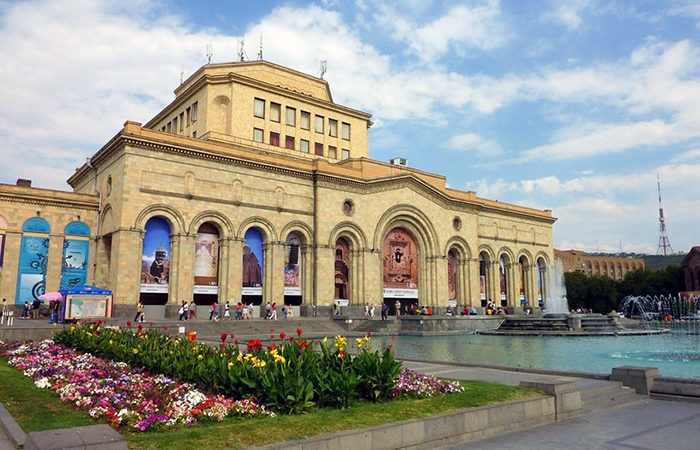 You’ll get acquainted with the history of Yerevan at the History Museum of Armenia, which occupies the lower two floors of the building. The History Museum of Armenia is like a time machine, taking visitors deep into the country’s ancient past.
You’ll get acquainted with the history of Yerevan at the History Museum of Armenia, which occupies the lower two floors of the building. The History Museum of Armenia is like a time machine, taking visitors deep into the country’s ancient past.
Address: 4 Republic Square
moreMatenadaran
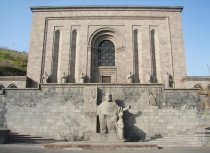 The ancient manuscripts written, created, translated, preserved, and restored by the Armenian people are the heritage not only of Armenia, but of all humanity.
The ancient manuscripts written, created, translated, preserved, and restored by the Armenian people are the heritage not only of Armenia, but of all humanity.
Address: Yerevan, 53 Mashtots Avenue
moreSergei Parajanov House-Museum

The museum archives include the director’s correspondence: letters addressed to Lili Brik, A. Tarkovsky, Y. Nikulin, V. Katanyan, and other cultural figures.
The museum displays around 700 works of art. Two memorial rooms recreate parts of Parajanov’s apartment in Tbilisi (Georgia).
Address: Yerevan, Dzoragyugh Ethnographic District, 15, 16
moreSardarapat Memorial Complex
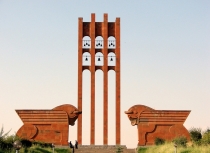 The complex was built in May 1968 to commemorate the defeat of the Turkish army on May 26, 1918, marking the 50th anniversary of that historic battle. It is considered one of the most remarkable structures of modern times.
The complex was built in May 1968 to commemorate the defeat of the Turkish army on May 26, 1918, marking the 50th anniversary of that historic battle. It is considered one of the most remarkable structures of modern times.
Address: Araks village, Armavir Province
moreEchmiadzin Treasury Museum
 The museum was designed by architect Baghdasar Arzoumanian and is named after American-Armenian benefactors Mr. and Mrs. Manoukian. This beautiful and valuable building was constructed with their generous donation. The items displayed in the treasury were brought to the Mother See of Holy Etchmiadzin over time from various Armenian communities across a wide geographical area.
The museum was designed by architect Baghdasar Arzoumanian and is named after American-Armenian benefactors Mr. and Mrs. Manoukian. This beautiful and valuable building was constructed with their generous donation. The items displayed in the treasury were brought to the Mother See of Holy Etchmiadzin over time from various Armenian communities across a wide geographical area.
Address:Mother Cathedral, Etchmiadzin
moreThe A. Spendiaryan National Academic Theatre of Opera and Ballet
 The theatre opened on January 20, 1933, with a performance of Almast, an opera by Alexander Spendiaryan.
The theatre opened on January 20, 1933, with a performance of Almast, an opera by Alexander Spendiaryan.
It is one of the most iconic landmarks of Yerevan. While the Opera and Ballet Theatre was officially established in 1932, its current building was completed only in 1940, based on the design by architect Alexander Tamanyan.
Address: Yerevan, 54 Tumanyan Street
more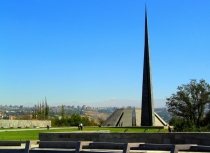
One of the deepest scars in Armenian history is the Genocide of 1915, committed by the Ottoman Empire. Massacres, brutality, forced labor, and deportation of the Armenian population all took place during World War I, from 1914 to 1918.
Location: Yerevan
more

